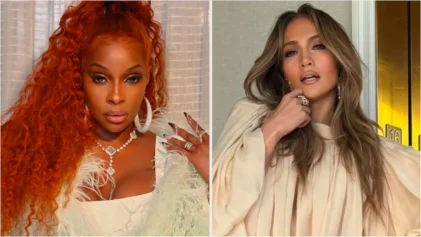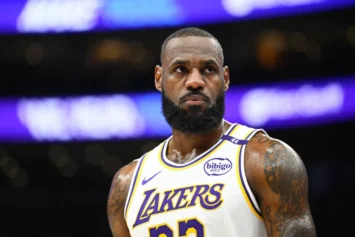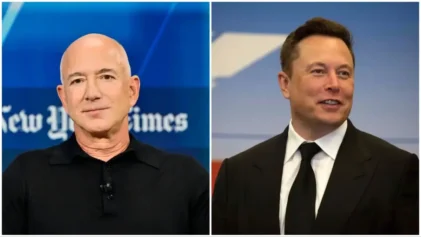The varied narratives surrounding Black men, their brotherhood and relationships with Black women is getting a fresh outlook with the new television series “Johnson.”
The BounceTV dramedy is about four Black men — Greg, Omar, Jarvis and Keith — who all share the same last name, Johnson, navigating life, love, and friendship together. The show has been years in the making, but in the last four years found support from several key figures, including Cedric The Enterainer, who serves as an executive producer, and comedian D.L. Hughley, who lends his star power as a recurring character. In a nutshell, the characters challenge the prism in which Black men have been portrayed largely by white media.
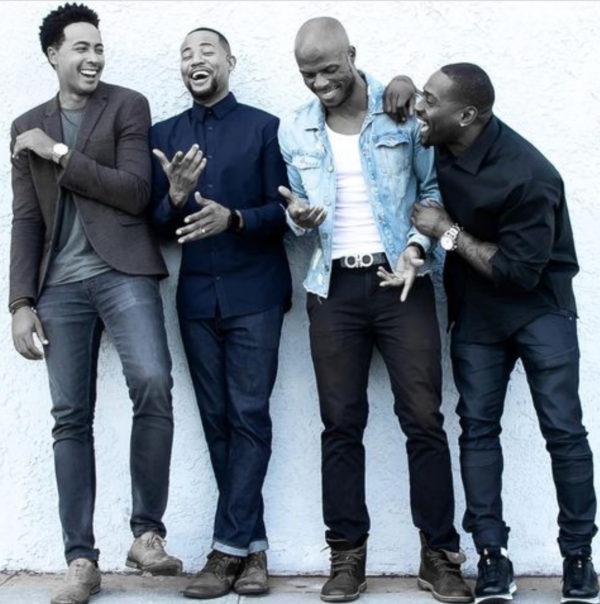
Atlanta Black Star caught up with the show’s creator Deji LaRay, who plays Greg, actor Thomas Q. Jones, who plays Omar, and executive producer Eric Rhone, who behind-the-scenes helped to bring forth a show that fills the void on television, that being relatable stories told by Black men.
Each one tells us the idea behind “Johnson” and what the process was like to finally bring the television show to fruition.
DL: In 2014, the show concept started with myself — just having people in my life who represented all of these characters, and also seeing the void in the media, you know when it came to representation. We all know how important media is in shaping people’s opinions on certain cultures and men and women. I traveled a lot, so seeing how we were represented. When I traveled outside the country they all thought we were a certain way, so I saw a void in television and wanted to create a show that really expressed how I was, how my friends were, and how the vast majority of men around were.
You know, I wrote the script fast-forward to 2017 when I met Thomas, I think that was the moment where it got even more real you know because Thomas is a very specific guy. He challenged me a lot on concepts in the script and it just continued to evolve. The pilot in the first season had been in constant writing mode from 2014, so we had a lot of time to really craft and develop these characters and develop these storylines. But like Thomas said before it just got even more specific. He came on board, he’s an incredible creative, you know very, very specific mind, great ideas, and I think him coming on board just made the writing and the work all that much better, but I’ll let him speak on from that point in 2017 when we started to collaborate.
TJ: Yeah, so I moved to L.A. in 2014 to pursue acting and this whole next transition in my life from football, and probably two months after I moved to L.A. I bumped into a writer that mentioned this show ‘Johnson’ to me and said that I’d be perfect for it. And from that point forward every two months I’d reach out, What’s up with Johnson?, ‘What’s up with Johnson? and I didn’t know that it was Deji’s show until I met him in 2017, three years later. And when I met him, ‘I’ve been asking about your show for the last three years.’ And it’s just something about it that stuck with me when I heard the concept, especially coming from the NFL, knowing how NFL players are, you know ,kind of stereotyped, and I wanted to be able to create something to change that stereotype across the board with Black men, and so when I met Deji we just clicked immediately. I mean literally, we became brothers. We had dozens of conversations about the show, the ideas.
But in the meantime, over the course of four years up to now everything was happening. You had police brutality, you had George Floyd, and social media just exploded in regards to these conversations about Black men and Black women, so we had all this information, all this content right there in front of us, and now four years later after we met Deji’s idea and his creation from 2014 is now about to premier [Aug. 1 on BounceTV], so it’s been an evolution process, it’s been a growth process for Deji and myself as going from meeting each other as friends to becoming real brothers, to our own production company, Midnight Train Productions. It’s been a blessing, it’s been a blessing.
Sometimes you want things to happen immediately, but there’s no way ‘Johnson’ would be as specific in detail as it is if it would have happened any sooner than now.
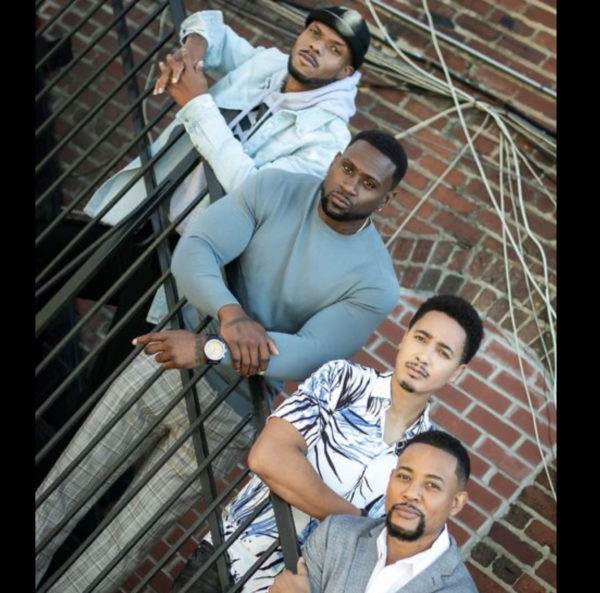
David Hudson [EVP Original Programming for Scripps Network]: If I can interject, I think there’s an unsung hero in here too, and I would love to hear from Eric Rhone [‘Johnson’ executive producer], you know, who really carried this over the finish line.
(Scripps Network houses Ion and Bounce where ‘Johnson’ is broadcast every Sunday from 8 p.m.)
Eric Rhone: I would just say that again that this show is about Black men controlling our own narrative, taking power over our own narrative. Throughout the history of the earth, our narrative has been told and controlled by someone else or some other force, so this is really an opportunity for us to take control of our own narrative. I knew this show had to be on a platform and with a company that would let us tell our story unfiltered.
So Cedric [The Entertainer] and I we have an overall deal at a major media operation, they wanted the show, they wanted ‘Johnson’ but we told them ‘You can not have this show. This show has to be in the hands of an executive of a company that actually gets the culture.’ We knew that David [Hudson] with Bounce would provide an atmosphere that these artists, these talents to make a story, tell their stories unfiltered, like raw straight the way they’re feeling them. It’s about controlling our own narrative.
DL: I just want to back up a little bit, if we’re talking about the process of how this show came to fruition, shouting out Reesha L. Archibald [‘Johnson’ executive producer].
TJ: Yeah, Reesha!
DL: Originally when I was trying to get this show going the first person who came to me was Thomas, right. And my idea was to put Thomas in the show because obviously, I knew he was a great actor at that time and I was already aware of who he was, but Thomas was like, ‘Yo, let’s shoot a pilot and I’ll pay for half the pilot.’ That was the first time anybody volunteered to put money in my pocket, and so we shot a pilot at the end of 2017, and it wasn’t cheap, you know and this guy just wrote a check and just gave me a check, and so I commend him for that. But then the first person to really see this show and take it to the next level was Reesha Archibald who, as a Black woman, saw the value in telling our stories, in telling our truth, and she’s the one who took it to Cedric and Eric, and we just want to thank her that.
TJ: Real quick, Reesha a Black woman saw this, and honestly out of everyone we showed this to, Reesha was the one person that immediately, immediately saw it, got it as a Black woman. She could connect, she had brothers, uncles, cousins that reminded her. And when we showed her the trailer or the pilot, it was loud; she couldn’t even hear it but visually she knew this is something that needed to be told and she took it to Cedric and Eric and we’re forever grateful to Reesha for that.
ER: We sat down and we must have talked for three or four hours that first day. Not just about the idea, but about our life experiences, about the importance about being able to tell our stories unfiltered through the Hollywood filtration system. So again, you have these types of creative juices to work with — you’re going to make sure that their intention with the product has on the direct impact on the marketplace. That means clearing out a lot of people and letting these artists do what they do.
